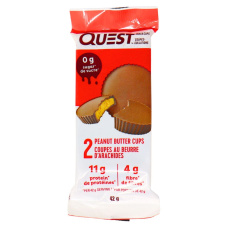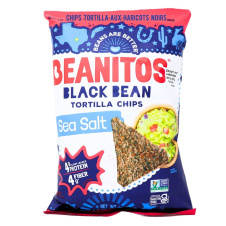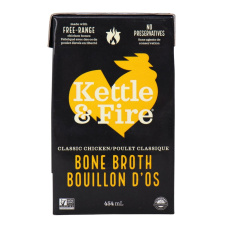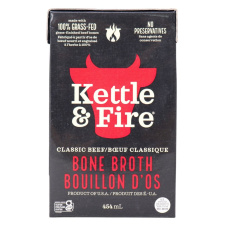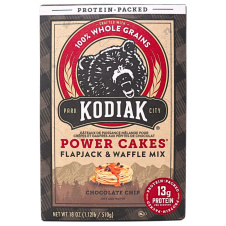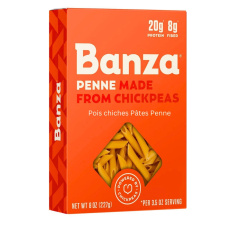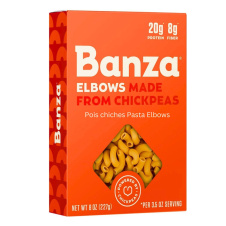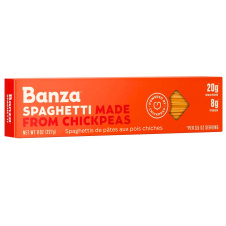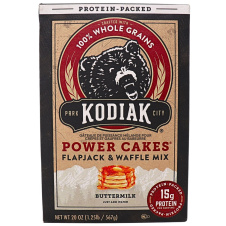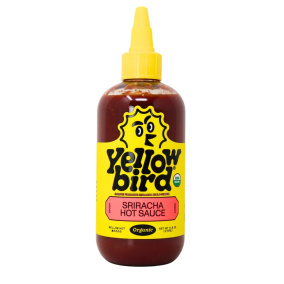
The Rise Of High-Protein Foods: How To Increase Your Protein Intake
When you hear the word protein, what’s the first thing that comes to mind? Protein shakes and protein bars? Athletes? Bodybuilders? Weight lifters?
High protein foods were originally targeted at these active individuals whose main goals were to get bigger, better, faster, and stronger. While this traditional group is still the main focus of many companies, high protein claims are becoming more and more popular with the average consumer and health-conscious individuals. Nowadays, protein has gone all-inclusive! Instead of focusing strictly on performance and muscle gains, the focus has shifted to anybody looking for a quick and convenient way to boost their health. And with the recent rise in high protein foods, everything from pasta to rice, cookies to chips, has also been fortified or reformulated to fit this growing trend–this makes it easier than ever to get your daily protein intake! With so many new high-protein food options, the days of forcing yourself to swallow unappetizing, tasteless protein is over! Here’s the rundown before you start cranking up the protein!
What is Protein?
Protein is an essential macronutrient that your body needs in order to survive and function properly. It’s found throughout your body–in muscle, skin, hair, bones, and virtually all body tissue. You are made up of protein! Protein is your building block, and its building blocks are amino acids. Amino acids can either be non-essential or essential. Non-essential amino acids can be made naturally from scratch by your body, while essential amino acids cannot be synthesized by your body and must be obtained from your diet.
Different Sources Of Protein
Not all protein is created equal. Protein can come from animal sources or plant-based sources–the main difference being the amino acids that they can provide. Any protein source that provides you with all of the essential amino acids is considered to be a “complete protein”. Fish, beef, poultry, and dairy are great sources of complete protein! While legumes, nuts, and seeds are considered to be “incomplete proteins” since they don’t provide you with all of the essential amino acids. For example, grains are limited in lysine, while legumes are limited in methionine, both of which are essential amino acids. But there are also exceptions–quinoa, chickpeas, and soy products such as tofu and tempeh are great plant-based sources of complete protein. Generally, animal-based proteins provide you with all of the essential amino acids, while many plant-based proteins may be low sources of them or missing one or more.
This is why it’s especially important for those on a vegan and plant-based diet to make sure they’re getting enough protein in their diet. Eating these “incomplete proteins” is not enough to give your body all of the amino acids it needs. One way to overcome this hurdle is by combining various incomplete protein sources together, like a puzzle, to make sure you’re getting all of the amino acids that you need in a day.
As a general rule, grains, seeds, or nuts can be eaten together with dried beans, peas, or lentils to make a complete protein. For some delicious inspiration, try a combination of cereal made from toasted beans and rice, or hearty bean soup with corn bread.
The Importance of Protein
Generally, everyone should aim for 10-35% of their calories to come from protein. You could also determine the minimum and maximum amount of protein to consume daily by using these simple calculations:
Minimum Daily Protein Intake: 0.8g of protein x your body weight in kilograms
Maximum Daily Protein Intake: 2g of protein x your body weight in kilograms
A lot of your body is made up of this stuff! And making sure you’re getting enough protein every day is crucial to your health. It plays an important role in your body, including:
- Building. Protein is an important building block of all your bones, muscles, cartilage, skin, hair, and nails. It’s been hard at work constructing your body since the day you were born!
- Repairing. Your body needs protein to build and repair muscle and tissue. Something has to keep fixing your clumsy injuries and make sure you’re getting those gains from the gym!
- Oxygenating. A protein found in your red blood cells is crucial in carrying oxygen throughout your body. That oxygen won’t move itself!
- Digesting. About half the protein that you consume each day goes into making enzymes, which aid in digesting food, making new cells and body chemicals, and other important cellular processes.
- Regulating. Protein plays an important role in hormone regulation.
Protein plays a part in just about everything that goes on in your body! And with these crucial roles, you can understand why eating a high protein diet has been shown to have benefits like weight loss, decreased appetite, muscle building, and increased metabolism. And without enough of this important macronutrient, it’d be difficult for your body to operate smoothly. You can experience negative side effects like:
- A compromised immune system, cardiovascular system, respiratory system, and/or hepatic system
- Poor digestion and bacterial overgrowth in the digestive tract
- Compromised brain development
- Loss in muscle and bone mass
- Poor skin integrity and wound healing
The Rise of Protein-Infused Foods
With more and more protein-enriched foods lining store shelves, it’s easier than ever to find a high-protein food that suits your lifestyle, tastes, and needs. This move has brought a plethora of food options that you probably previously avoided or had negative connotations with for being branded as “unhealthy”. Whether you have a sweet tooth or want a hearty meal, there are endless options available for any time of day!
- A high-protein breakfast
Breakfast is often referred to as the most important meal of the day. Starting your day off with a high-protein meal has been shown to support weight loss by increasing muscle mass, glucose regulation, and hormones related to fullness. Try making a quick and easy high-protein pancake for a sweet and filling breakfast–it’s sure to be flippin’ delicious!
Not in the mood for cooking? Try a healthy twist on a breakfast favourite, toaster pastry! With 20g of protein, these delicious sweet treats are a no-brainer for when you want a quick breakfast you can eat on the go. You can also easily upgrade any breakfast with a nice cold glass of high-protein, plant-based milk. Fortified with essential vitamins and minerals like vitamin D and calcium, so you know you’re starting your day off right! - A high-protein lunch
To help give you something to look forward to and get over that mid-day slump, try healthy instant ramen! Channel your inner broke college student, without the repercussions of pure sodium for a meal! It’s high in protein, and completely plant-based for a quick and easy meal that’s sure to hit the spot. You can also try swapping out your regular tortilla wraps for a high-protein alternative to easily boost your protein intake and help keep you fuller for longer–without straying too much from your daily routine.
- A high-protein dinner
After a long day at work, it can be tempting to order take-out. But with mystery ingredients and unknown cooking methods, it may not be a healthy option. But don’t worry, dinner doesn’t have to be hard or complicated! You can skip the take-out and make a healthy dinner at home that's quick and easy.
Try a comforting pasta dish using chickpea pasta and plant-based bolognese! Together, they make a comforting and filling dish that’s also high in protein. Delicious and nutritious! Or you can make any soup better just by swapping out regular broth for bone broth! Rich in vitamins and minerals, bone broth is a great source of amino acids!
- High protein snacks
Snacks, snacks, and more snacks! When you’re not hungry enough for a whole meal, but just need something to chew on, snacks are the perfect in-between-meal and are essential in warding off the most extreme cases of the munchies! If you’re craving something savoury, protein cheese puffs and black bean chips are the ultimate high-protein snack! Crispy, crunchy, and oh so scrumptious.
Got a sweet tooth? Listen closely chocolate lovers, you’re going to love this! Snack on a healthy peanut butter cup or a delectable brownie to put those cravings to rest and keep you feeling satisfied. Chocolatey goodness just got a whole ‘lot better and a whole ‘lot healthier thanks to protein!
For a quick and easy snack to take on the go, this smoothie pouch is made with real fruit goodness and packed with protein! Super portable and super delicious, it’s the perfect way to get your nutrients and boost your protein intake when you’re always on the go!
Final Thoughts
With the rise of protein-infused foods, you can finally nourish your body, satisfy any cravings, and fill your tummy up with delicious and nutritious foods! Gone are the days of chalky and tasteless protein. Here at Natura Market, we have thousands of the latest and greatest high-protein foods for you to try–no matter your diet or lifestyle!



